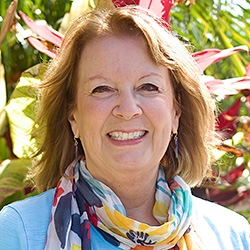

NVC Resources on Conflict
-
When we're judging we're less able to access both what we care about and constructive next actions. Instead, create more internal space and agency starting with connecting to your feelings and needs; then feel your grief or disappointment; followed by getting curious about the other party's needs and context -- and then based on collective needs and the long term effects make requests or take aligned action that works for all.
-
Ask the Trainer: Understanding your needs behind using protective force with children.
-
Ask the Trainer: Can all needs be met when illness limits the capacity of one person to meet the needs of her partner?
-
Ask the Trainer: How do I respond to people who believe that consequences are necessary to change behavior?
-
CNVC Certified Trainer Arnina Kashtan talks about what she calls "witnessing humanity," touching on the gift of presence, empathy vs. identification and staying present in the face of intensity.
-
CNVC Certified Trainer Shantigarbha Warren offers a report of his recent NVC training trip to Israel/Palestine, India and Sri Lanka and clarifies how NVC can support social change in three very different contexts. Included is an exercise, based on Gandhi’s teaching.
-
What parent hasn't experienced a surge of protectiveness when your child hurts their sibling? Our cultural training calls us to immediately take two roles: the judge, determining who was wrong and what the consequences will be, and the police, enforcing the consequences. These thankless jobs often result in frustration, resentment, pain, for all. Read on for an example of how empathy transformed a child's impulse to hit another child.
-
Join CNVC Certified Trainer Mary Mackenzie to learn a few of her tried-and-true simple Self-Empathy techniques, especially focused on the challenges of the holiday season.
-
In this brief audio snippet, CNVC Certified Trainer and founder of the CNVC Parenting Project, Inbal Kashtan, offers a profound insight that can change how we see and relate to our children.
-
In this brief audio snippet, CNVC Certified Trainer and founder of the CNVC Parenting Project, Inbal Kashtan, explores observation in contrast to interpretation, and leads an exercise in observation skills.
Quick Links

Stay in Touch!
We value your privacy, won't share your email address and you can easily unsubscribe any time.









